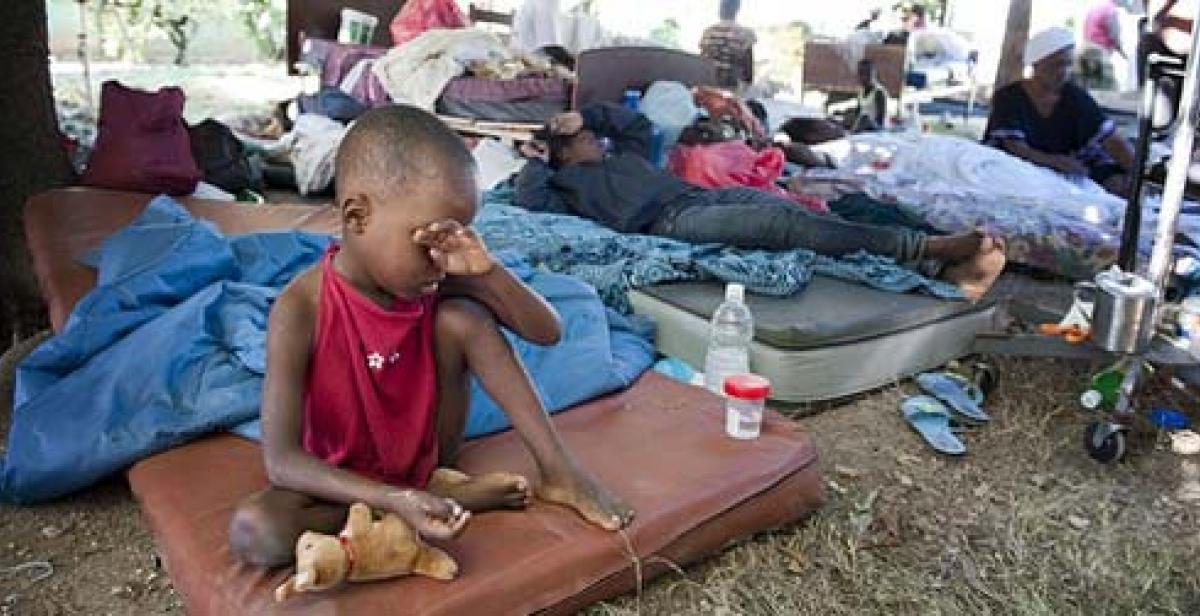Concerns and desires of Haitian people must be heard to ensure long-term development of earthquake-stricken nation, says Progressio
Three months after a devastating earthquake rocked Haiti, international development charity Progressio says the crippled Caribbean nation must not miss the chance to build a more “just and inclusive society” based on the concerns and desires of the Haitian people themselves.
Drawing on extensive consultation with partner organisations on the ground in Haiti, Progressio’s Advocacy Coordinator for Latin America and the Caribbean, Lizzette Robleto says: “The earthquake which hit Haiti was a huge tragedy but it was also a chance for the Haitian people to take control of their own destiny, and to construct a new nation based on new ideals.”
She continues: “Over recent weeks the generosity and solidarity shown by the UK and the international community as a whole has been heartening. Billions of dollars have been pledged to help this devastated nation get back on its feet. Things would have been so much worse without international support.”
The quake which struck Haiti, the poorest nation in the Western hemisphere, on 12 January caused untold damage to the country’s infrastructure and killed more than 220,000 people. It provoked a global outpouring of support, culminating in the UN-backed donor’s conference on 31 March, which saw leaders from over 150 countries and international organisations pledge long-term assistance to support the country’s recovery.
However, many Haitian organisations which have been working alongside Dominican and international NGOs in the aftermath of the earthquake as part of the “Help Haiti” platform, of which Progressio is part, have expressed their desire to see Haiti go further and lead its own renewal.
“We must seize the opportunity to create a more inclusive, more just, more equal society where everyone is respected, where women, rural farmers, people living with disabilities, and those practising traditional faiths no longer feel marginalised”, Progressio partner and Haitian civil society leader Colette Lespinasse told the 31 March donors’ conference in New York.
Lizzette Robleto adds: “Many Haitian NGOs believe their country now has a chance, unlike any other in recent history, to create a more just society. That means a break with the past. As the poorest country in the Western hemisphere, Haiti cannot afford to slip back into a ‘business as usual’ approach to its future. Instead, our Haitian partners on the ground tell us they want to see new a new road map for their country, including new strategies to overcome exclusion, and a re-think of traditional models of political and economic dependence.”
Over the past three months thousands of Haitians up and down the country have come together to demand a new reality: education for all, investment in agriculture and the environment, improved use of renewable energy and a stronger judiciary so people’s basic rights are respected.
Lizzette concludes: “It is the people of Haiti who will ultimately rebuild their nation in close cooperation with the international community. If their voices and concerns are heard and heeded today, together we can all begin to work towards the new, more prosperous Haiti of tomorrow. Haitian people from all layers of Haitian society must be consulted at every stage of their country’s reconstruction and renewal – now and long into the future.”



